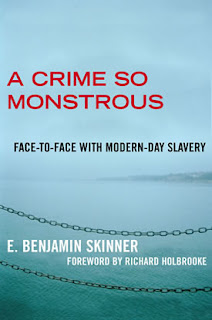 Bob Lesnefsky, a graduate of Franciscan University, found musical success as the award winning Christian rapper Righteous B whose albums include “Get the Kids to Revolt,” “Sweatshop Sessions,” and “How a Wound Bleeds.” But Bob’s true passion – what he considers his vocation – is a program he co-founded called Dirty Vagabond Ministries which currently operates in Steubenville, OH, Queens, NY, and Rochester, NY. I recently had the opportunity to interview Bob on “Christopher Closeup” (full podcast here). Here are some excerpts:
Bob Lesnefsky, a graduate of Franciscan University, found musical success as the award winning Christian rapper Righteous B whose albums include “Get the Kids to Revolt,” “Sweatshop Sessions,” and “How a Wound Bleeds.” But Bob’s true passion – what he considers his vocation – is a program he co-founded called Dirty Vagabond Ministries which currently operates in Steubenville, OH, Queens, NY, and Rochester, NY. I recently had the opportunity to interview Bob on “Christopher Closeup” (full podcast here). Here are some excerpts:TR: I want to focus on Dirty Vagabond Ministries because I was on your web site and I saw a description where somebody said, “If you want to know how these guys operate, think of Mother Teresa with earrings and tattoos.” So tell me about Dirty Vagabond Ministries.
Bob 'Righteous B' Lesnefsky: In the most simple description, it’s youth ministry to the inner-city church… We come into a city and make a long-term commitment to that city. We place two urban missionaries there that live among the people. The style of ministry they do we call incarnational ministry; they’re not waiting for people to sign up or show up. They’re going out to them, hitting the streets, and really everything happens in the context of that relationship.
TR: Did you grow up in the inner-city yourself? How did your vocation for this develop?
Bob 'Righteous B' Lesnefsky: I really have no idea to be honest (laughs). God kind of sucker-punched me. I definitely didn’t grow up in the inner-city. I grew up in about as suburban, white, upper-middle-class culture as it gets. Just outside of Philadelphia (is where) I grew up. But when me and my wife started doing youth ministry, we ended up at a little inner-city parish in New York. I didn’t realize how urban it was. About a year into it, we found ourselves in just a whole mess of problems with police there all the time, violence. We were about to quit and leave but something happened where our hearts were changed and we really fell in love with that kind of kid and we felt this is what we wanted to do with our lives.
TR: Give me an example of how relational ministry works with the kids.
Bob 'Righteous B' Lesnefsky: We go up to the projects or a basketball court or we show up at a park with a grill and start grilling hot dogs and feeding people. The first time we maybe just see them, get to know their name. Over weeks or years, it eventually builds relationships and develops into a friendship. It’s much more effective for me to share Christ with someone who considers me their friend than someone who I knock on their door and try to give them a five minute plug. These are people we have an authentic relationship with. There’s an element of trust that happens before we even tell them about God. They begin to see we care for them outside of whether or not they ever come to the church.
TR: Bob, on the Dirty Vagabond web site, it says, “We believe the greatest intimacy with Christ is found in the sacramental life of the Church.” A lot of these kids don’t have a foundation of faith, so how do you and your volunteers convey the relevance of the sacramental life of the Church to teens who may not have ever been exposed to anything like that?
 Bob 'Righteous B' Lesnefsky: It’s difficult. We have a little storefront building; it’s called “Urban Underground.” Kids come in there, there’s a pool table, it’s kind of a fun, cool place. A lot of those kids when they come in, I’ll hear them say, “Yesterday at church…” and they’re talking about coming into our building and hanging out. In some sense, we’re like, “Uh, we’re not church.” We’re trying to bring them to the Church and Christ and the sacraments. But on the other hand, there is something true about what they’re saying. They are experiencing the sacraments in a living way in someone who’s really trying to live that out and be Christ for them...But as far as how we make that tangible, we’ve got an old school bus we drive around every day. We pick kids up. On Sunday, we fill it up and go to Mass. Afterwards we have a big family style meal. So some of it is just exposing them to (the church) which is a little jarring when you’ve never come to church. But there’s a beauty in it too that they’re attracted to.
Bob 'Righteous B' Lesnefsky: It’s difficult. We have a little storefront building; it’s called “Urban Underground.” Kids come in there, there’s a pool table, it’s kind of a fun, cool place. A lot of those kids when they come in, I’ll hear them say, “Yesterday at church…” and they’re talking about coming into our building and hanging out. In some sense, we’re like, “Uh, we’re not church.” We’re trying to bring them to the Church and Christ and the sacraments. But on the other hand, there is something true about what they’re saying. They are experiencing the sacraments in a living way in someone who’s really trying to live that out and be Christ for them...But as far as how we make that tangible, we’ve got an old school bus we drive around every day. We pick kids up. On Sunday, we fill it up and go to Mass. Afterwards we have a big family style meal. So some of it is just exposing them to (the church) which is a little jarring when you’ve never come to church. But there’s a beauty in it too that they’re attracted to.TR: Do you think the fact that they’re lacking in a lot of worldly things opens them up to more spiritual nourishment?
Bob 'Righteous B' Lesnefsky: Yeah, I think so. I think half of the difficulty in ministry situations is first convincing people of their need. We’re one of the richest countries in the world. We have lots and lots of stuff and things to distract us. When you remove those distractions, you don’t have to spend as much time convincing them that we’re a people who are desperate for God. They’re well aware that they’re desperate. But for them, it’s trying to grab onto anything that can give them satisfaction or fulfillment for the moment. When you can point that in a genuine way (to Christ as) the person that’s going to fill that (need), it’s kind of a beautiful awakening.
TR: Bob, in everything I read about your work with Dirty Vagabond Ministries, you cite your wife Kate as helping to create everything. So tell me how did you find this incredible woman who’s so in tune with your life and your faith?
Bob 'Righteous B' Lesnefsky: It’s all God’s grace. When I met her, we were just good friends. She told me she was going to be a nun. She had already visited some convents. Somehow, we fell in love. My friends always tease me that when I die, I’m going to hell for stealing her from the convent (laugh). But she’s far more holy than I am. The thing I appreciate the most about her is that – in her holiness and in her relationship with Christ, she’s just willing to step into the adventure. She definitely has a missionary heart. She has a very simple heart and a very pure heart for God. So the rest of the stuff of the world and the things that a lot of times we feel like we need, she’s just okay without them. She’s also willing to take the risk of following God’s call wherever that’s been…She’s definitely my better half.
For more information on Dirty Vagabond Ministries, go to www.DirtyVagabond.com. To download the full interview, go to www.christophers.org/closeuppodcast.
TonyRossiBlogger@gmail.com




